Animals
-
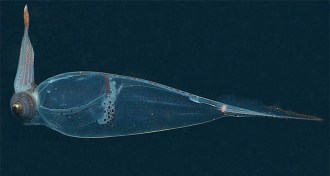 Life
LifeBy leaking light, squid hides in plain sight
Glass squid camouflage their eyes with wonderfully inefficient bioluminescence.
By Susan Milius -
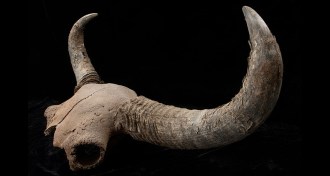 Paleontology
PaleontologyHuman route into Americas traced via trail of bison fossils
Bread crumbs in the form of ancient bison may mark one potential path that humans took to colonize the Americas.
-
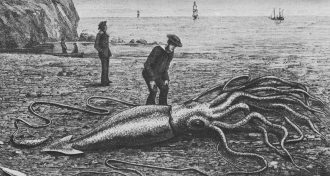 Animals
AnimalsMaximum size of giant squid remains a mystery
A scientist has come up with a new estimate of the maximum size of giant squid. He says the animals could be as long as two public buses.
-
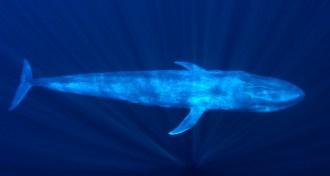 Animals
AnimalsPygmy blue whales deepen their moans
Sri Lankan pygmy blue whales are tweaking their calls — making one part deeper and keeping another part the same — but scientists can’t say why. The finding injects a new wrinkle in theories about blue whale calls.
By Meghan Rosen -
 Genetics
GeneticsAncient DNA tells of two origins for dogs
Genetic analysis of an ancient Irish mutt reveals complicated history of dog domestication.
-
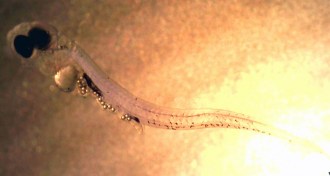 Animals
AnimalsTiny plastics cause big problems for perch, lab study finds
Researchers have linked microplastics to feeding behavior changes and development issues in Baltic Sea perch.
-
 Environment
EnvironmentTiny plastics cause big problems for perch
Researchers have linked microplastics to feeding behavior changes and development issues in Baltic Sea perch.
-
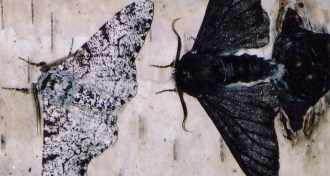 Life
LifeJumping gene turned peppered moths the color of soot
A single gene is behind some of the most famous examples of natural selection.
-
 Climate
ClimateReaders share climate change concerns
Readers respond to the April 16, 2016, issue of Science News with thoughts on climate change, prairie dogs and more.
-
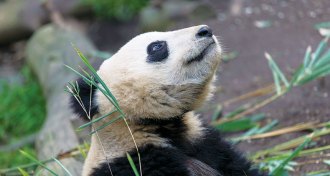 Animals
AnimalsPandas have ultrasonic hearing
Giant pandas hear very high frequencies. Scientists still don’t know why.
-
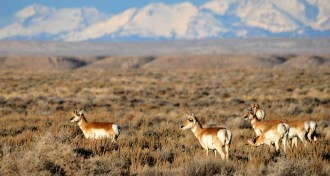 Animals
AnimalsAnimals get safe spots to cross the road — and car collisions drop
Over- and underpasses built for wildlife in Wyoming proved a success for both the animals and the humans traveling the roads.
-
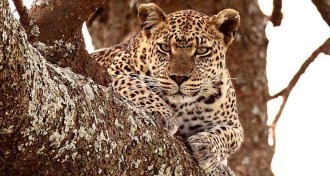 Animals
AnimalsCounting cats is hard, but we know the numbers aren’t good
Recent studies highlight the difficulty of counting big cats, but even imperfect counts show that these species are in trouble.